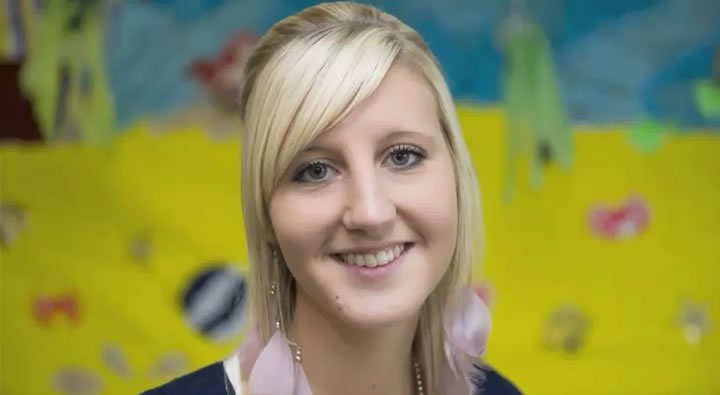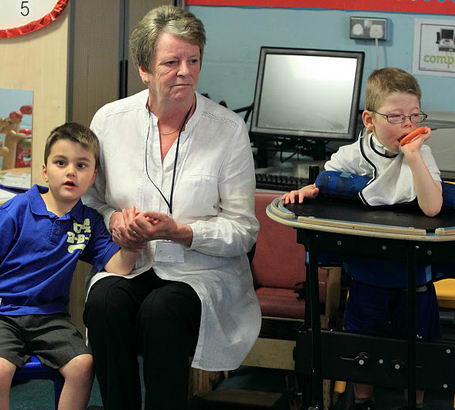
When children with complex needs are under stress the importance of strong relationships with particular adults becomes apparent.
Strong positive relationships are built when teachers/caregivers are attentive, responsive, stimulating and affectionate.
To promote healthy relationships, teachers/caregivers need to be sensitive and responsive to children.
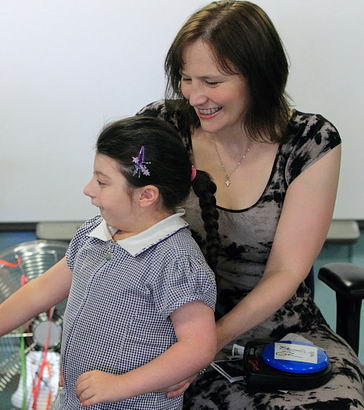
A sensitive and responsive teacher/caregiver is one who sees the world from the child's point of view and seeks to meet the child's needs.
Sensitive and responsive teaching/caregiving has four essential components:
- Awareness of a child's signals.
- An accurate interpretation of these signals.
- An appropriate response to the signals.
- A prompt response to the signals.
Listen to this audio clip in which Khiri, a teaching assistant, explains how she builds trust and good relationships with the children she works with during care routines.
What makes Khiri a sensitive and responsive carer?
Khiri shows sensitivity and responsiveness by
Khiri shows sensitivity and responsiveness
by:
- Talking to the children so that they are
aware of what is being done. - Recognises when children are unhappy.
- Knowing how children communicate and
responding to their signals.
Return

Responsiveness and sensitivity are particularly important in relation to meeting children's nurturing needs, such as feeding, care and comfort routines and settling for sleep.
Responsiveness and sensitivity to these nurturing needs lead to mutual trust.
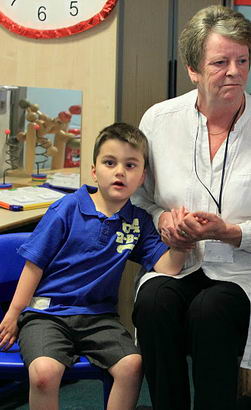
- As trust builds, children begin to express their positive feelings in various ways.
- They take pleasure in interacting with their caregivers. This is seen through:
- their body language, facial expressions and vocalisations, e.g. laughing, smiling, chatting, etc.
- They appear relaxed and expressive and can radiate openness, making themselves accessible to others.
- Through these positive interactions with others they lay the foundations of their own emotional resilience.
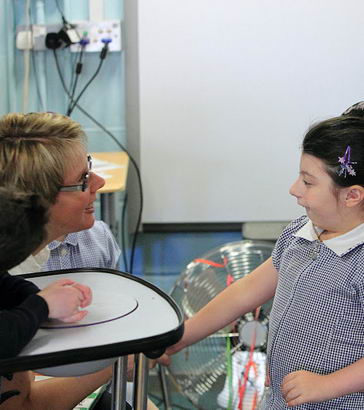
The teacher/caregiver strengthens their relationship with a child by showing support in a number of different ways:
Emotionally: 'My teacher/caregiver understands my feelings'
Cognitively/communication: 'My teacher/caregiver is aware of my needs'
Interactionally: 'My teacher/caregiver is there for me', and'
Physically: 'My teacher/caregiver is nearby'
